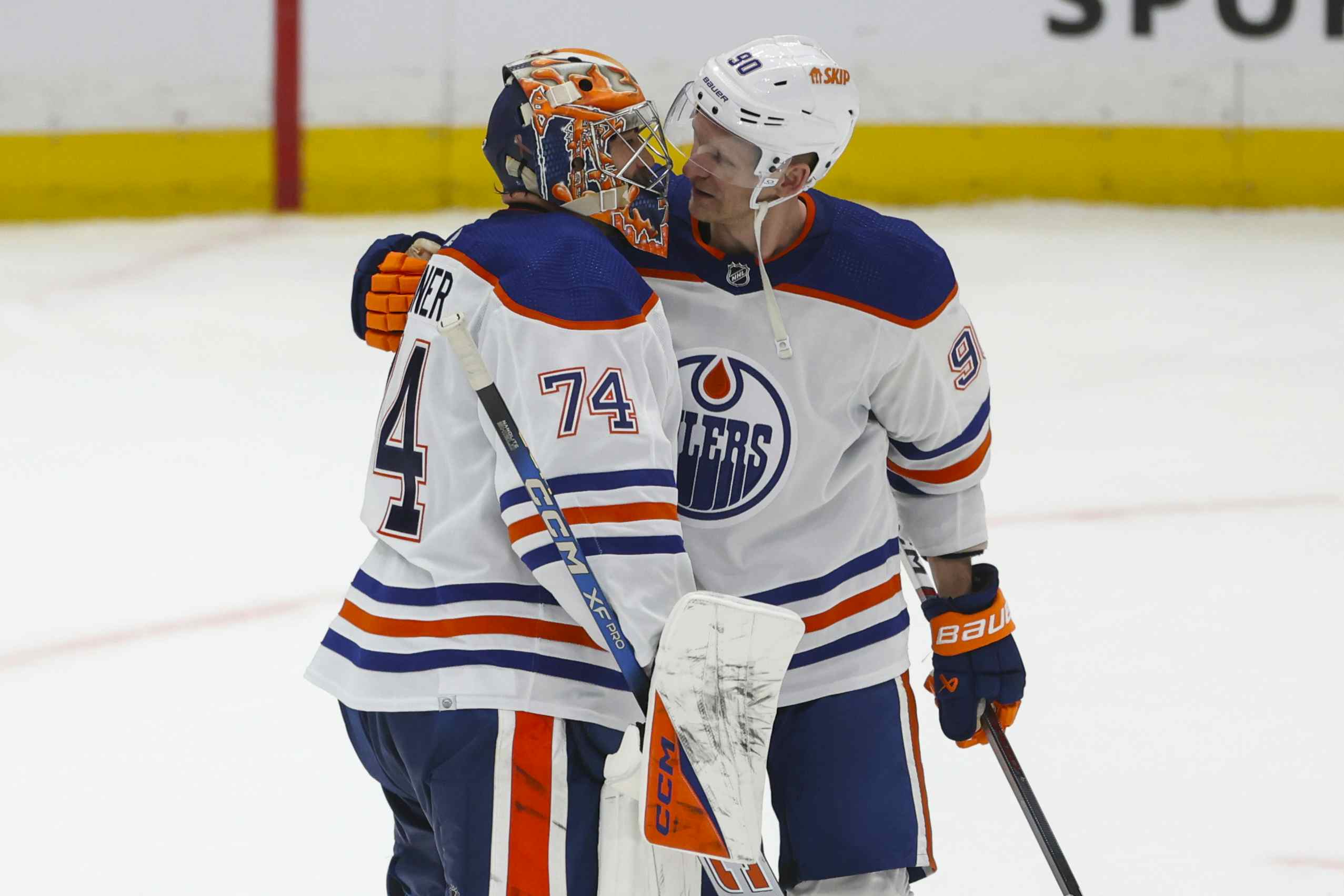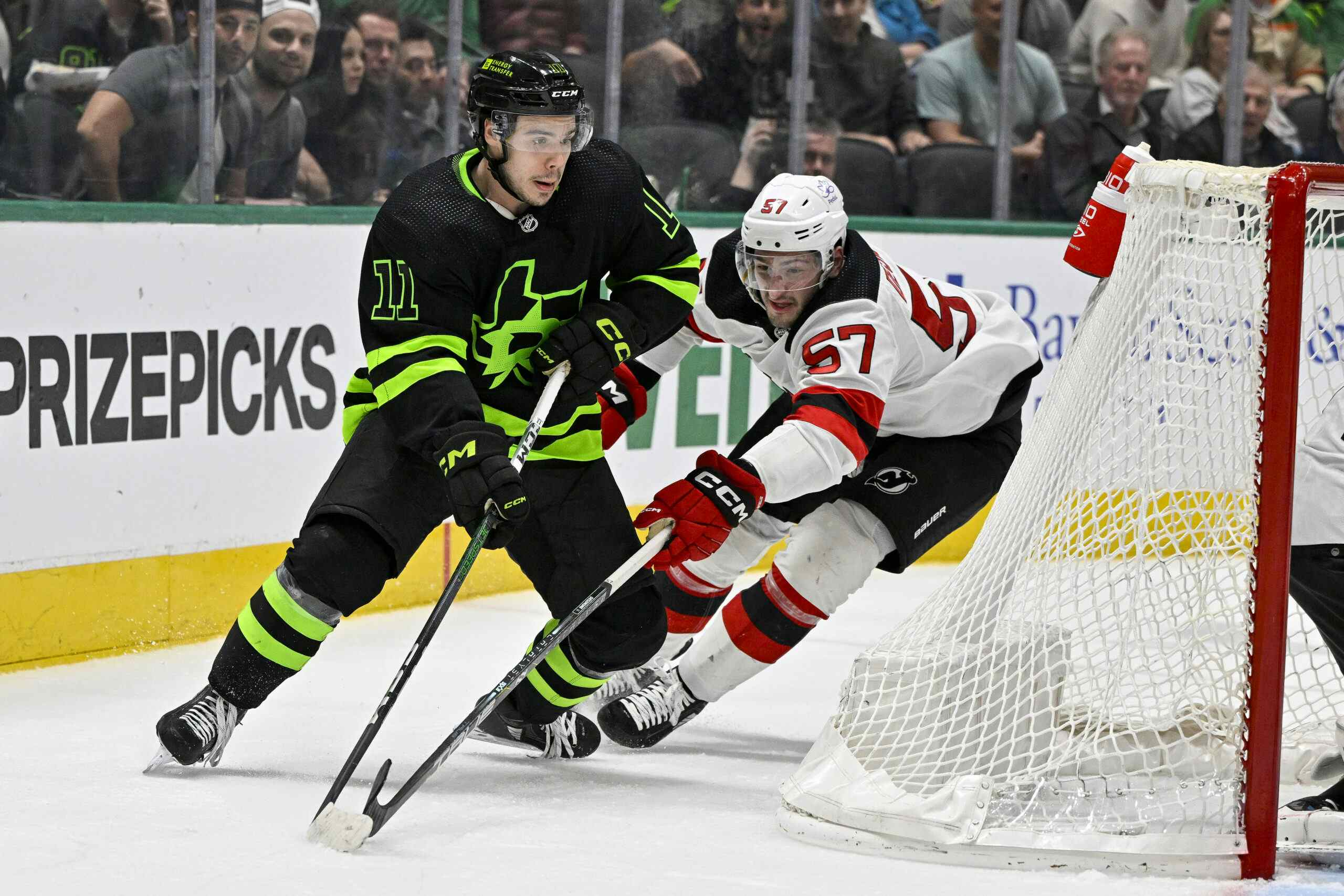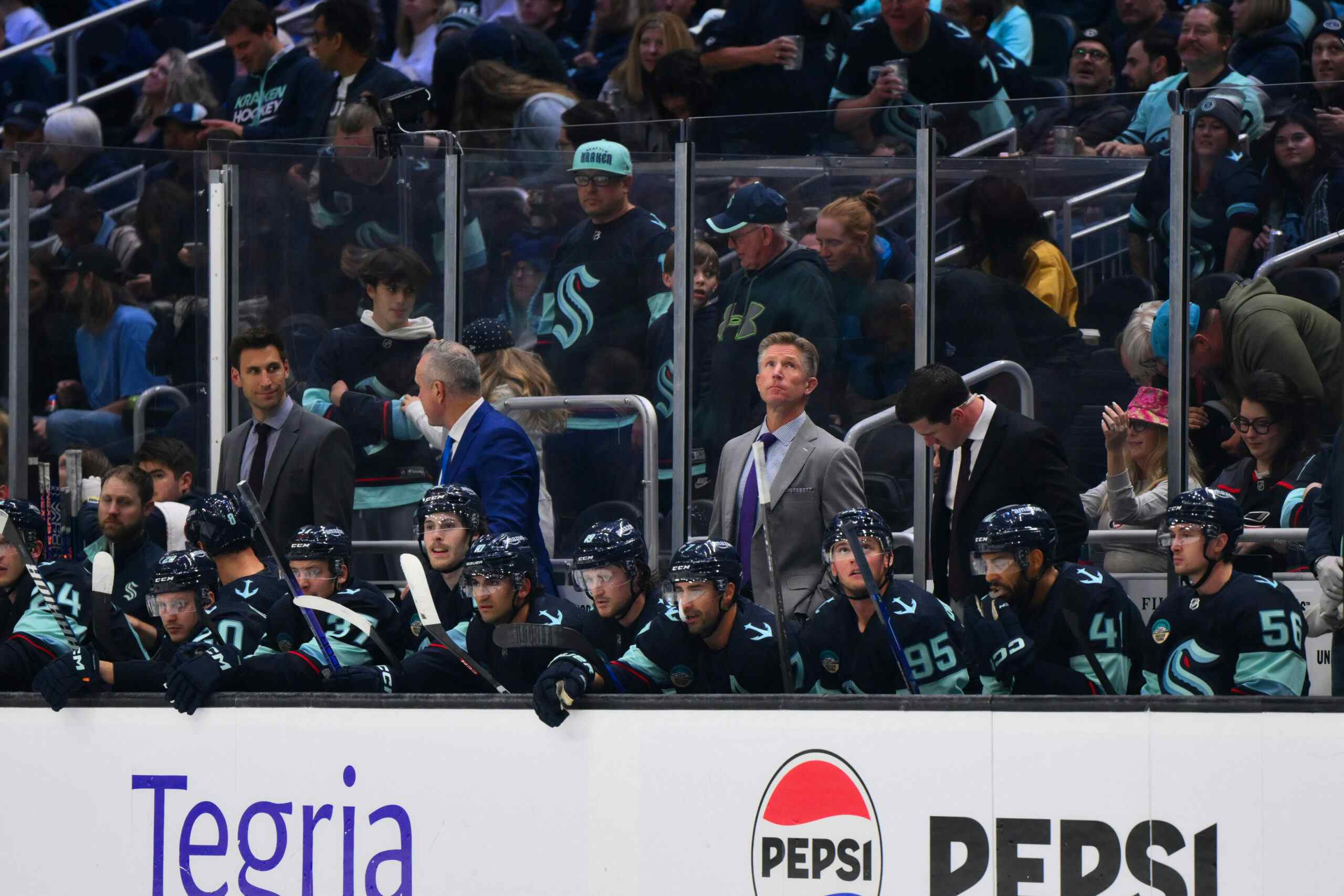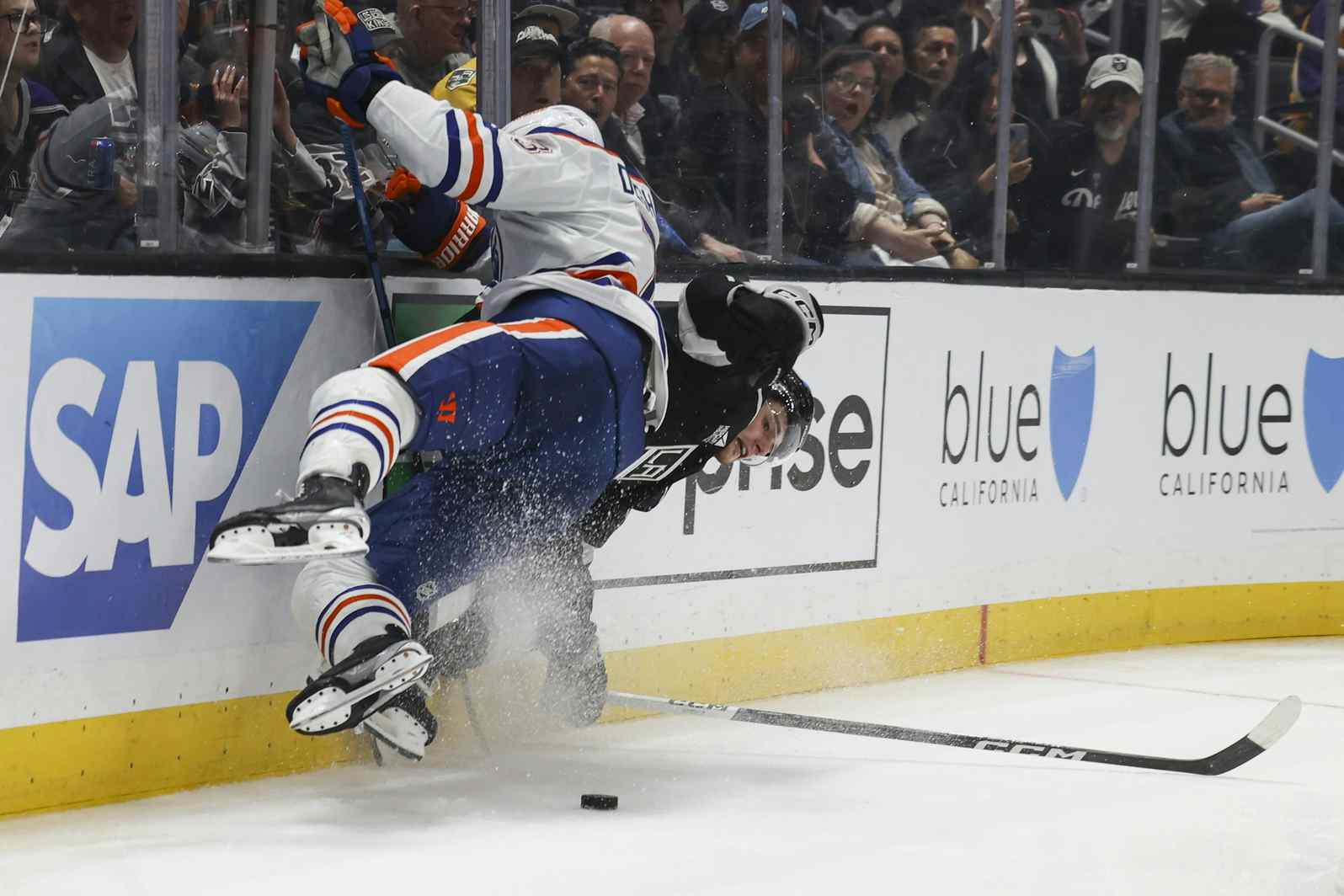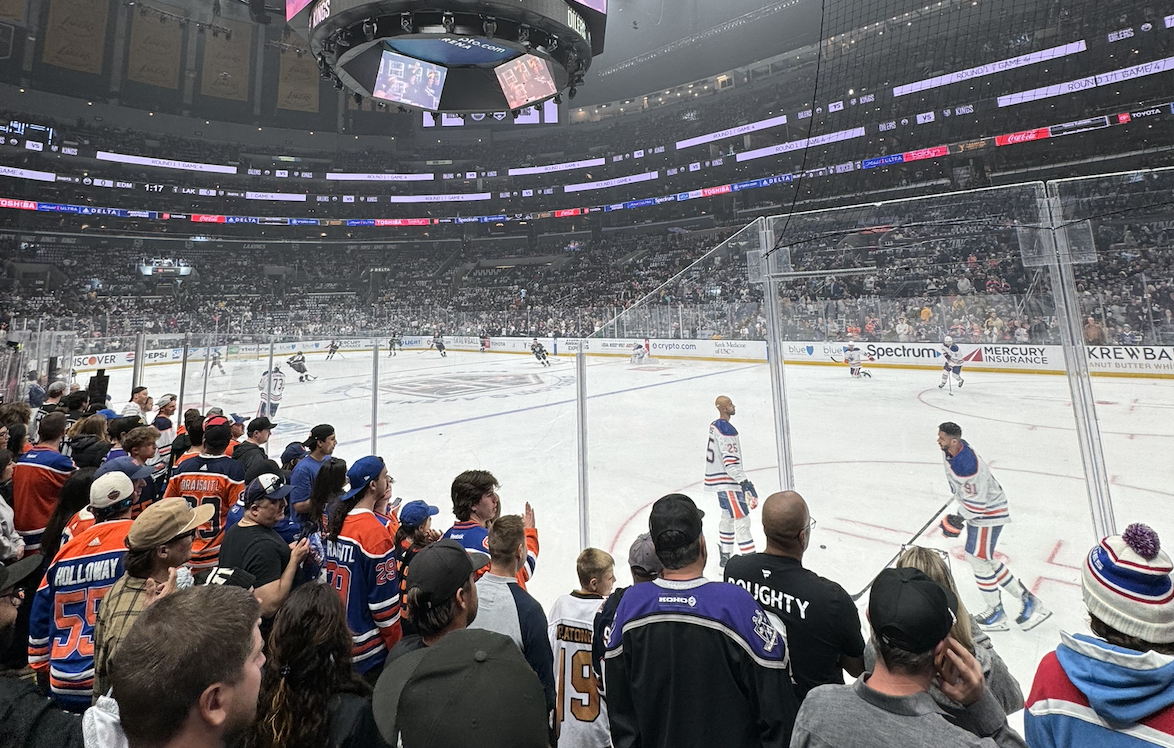A new order: Quinn and team-building
Pat Quinn hasn’t wasted any time taking a first step to addressing a flaw within the culture of the Edmonton Oilers, a fault that’s existed as long as I can remember.
I’m talking about the convention of “pecking order” that’s prevalent with the Oilers, and every NHL team for that matter. In simple terms, the subtle differences in the day-to-day hockey lives of veterans compared to younger players and rookies, and how old habits play into that.
It’s something I witnessed first-hand and contemplated a fair amount over the years, and a sidebar by Rob Tychkowski in the Edmonton Sun today got me thinking about it again.
In part, Tychkowski wrote: “Head coach Pat Quinn made quick work of the class system in training camp.
“In previous seasons the veterans would all change in the Edmonton Oilers main dressing room and the prospects would be relegated to the “Thanks for Coming” rooms down the hall.
Not this year. Quinn has everyone everywhere — rookies and veterans in the main room and rookies and veterans in the more spartan visitors and auxiliary rooms.”
Given rumblings about divisions in the dressing room — some of them based on age and experience — and questions about the leadership of the Oilers last season, the timing of Quinn’s all-for-one approach at camp couldn’t be better. In fact, it’s long overdue.
And more of the same is needed.
Back of the bus
While the conventions of pecking order, and how pervasive it is in the day-to-day existence of teams like the Oilers, might seem small potatoes to fans, seniority, or lack of same, is something that’s in your face every day as a young player. Likewise, for somebody who covered and travelled with the team as long as I did.
It’s been the accepted way of doing things since I first arrived at the rink for The Journal in 1989, looking to write about something, anything, Jim Matheson hasn’t already done 15 five times. Pecking order is just the way it’s done. Tradition and all that.
— When the Oilers travel, the veterans sit at the back of the plane and have their choice of seats, while younger players and rookies sit further up, nearer the reporters, team support staff and the coaching staff.
— Same idea on the bus. Old guys in the back, kids in the front. When the bus pulls up to the hotel or the plane, passengers file out back-to-front, so the veterans don’t have to wait to check-in or get their luggage and get seated on the plane.
— Once inside the hotel, same thing. Players get on the elevators and on the way to their rooms first. If need be, younger players are expected to wait with reporters and others at the lower-end of the food chain.
— In the dressing room at Rexall Place, vets sit on the wall and in the corners furthest from the door that’s at the entrance to the room. It’s where you’ll find Sheldon Souray, Shawn Horcoff, Steve Staios and captain Ethan Moreau.
With the exception of goaltenders, who always sit nearest the door, the closer you get to the entrance the younger the players are.
— The rookie dinner. Long a tradition, veterans pick a city and a restaurant and have the rookies, be it one, two or whatever, pick up the tab. It’s a rite of passage. The guys making the big dough eat and drink for free. The kids pay the freight.
A new order
Each of the above, taken on its own, might not seem like a big deal, but, aside from the reasoning “it’s always been done this way,” what’s the benefit? How does treating a handful of players like grunts build a team? Really, what’s the upside? Learning respect? Putting people in their place?
Being reminded seniority has its privileges, after all, is relatively harmless in the right degree, no? At least nobody is getting their head or their nuts forcibly shaved any more. Are they?
Then again, if the reminder is too heavy-handed, or if the make-up of the team is old players and very young players, as it’s been with the Oilers the past two seasons, can an added sense of entitlement by veterans contribute to a split in the room?
I think Quinn is on to something here, be it a small step. Now, I’m guessing that some of the veterans might disagree because, again, it’s always been this way. They paid their “dues.”
It wasn’t long ago that paddling some Grade 8’s ass to welcome him to high school was OK. Hazing? What’s the problem? How about pouring a 26-ounce bottle of hard stuff down some freshman’s throat at university? A little puking. No big deal. It goes without saying that somebody’s who come up that way isn’t big on change when it’s somebody else’s turn.
Hell, when I covered my first Oiler game, we were still smoking in the press box. I bitched like hell when that stopped. Times change.
All for one
I’m all for Quinn’s first step and hope it’s not the last. Why do veterans need extra perks and conventions as some sort of validation they’re higher up the pecking order? They get that every time they open their pay packet.
Why shouldn’t Souray schlep down to the cramped dressing room with Johan Motin during camp? Why not have Moreau sitting between Charles Linglet and Kip Brennan?
Why not take it a step further and open up all the stall spaces in the big room once the team is picked? Have a draw, a karaoke contest, anything, to see who sits where. Sam Gagner beside Souray, Zack Stortini next to Staios. They are all teammates, no?
Why not have a rookie dinner where the veterans peel off some of that big stack and treat the rookies? Why insist the kids sit closest to reporters on the bus? Everybody should have to put up with their share of pissing and moaning about deadlines, cheap cologne and booze breath.
It’s easy to mouth the words, “Once an Oiler, always an Oiler.” It’s easy to talk about teamwork and being teammates. Proving it, even in little ways that might seem insignificant, is another thing.
It’s obvious Quinn, the old school guy, has some new ways of looking at what it takes to build a team. Thank goodness for that.
— Listen to Robin Brownlee every Thursday from 4 to 6 p.m. on Just A Game with Jason Gregor on Team 1260.
Recent articles from Robin Brownlee


